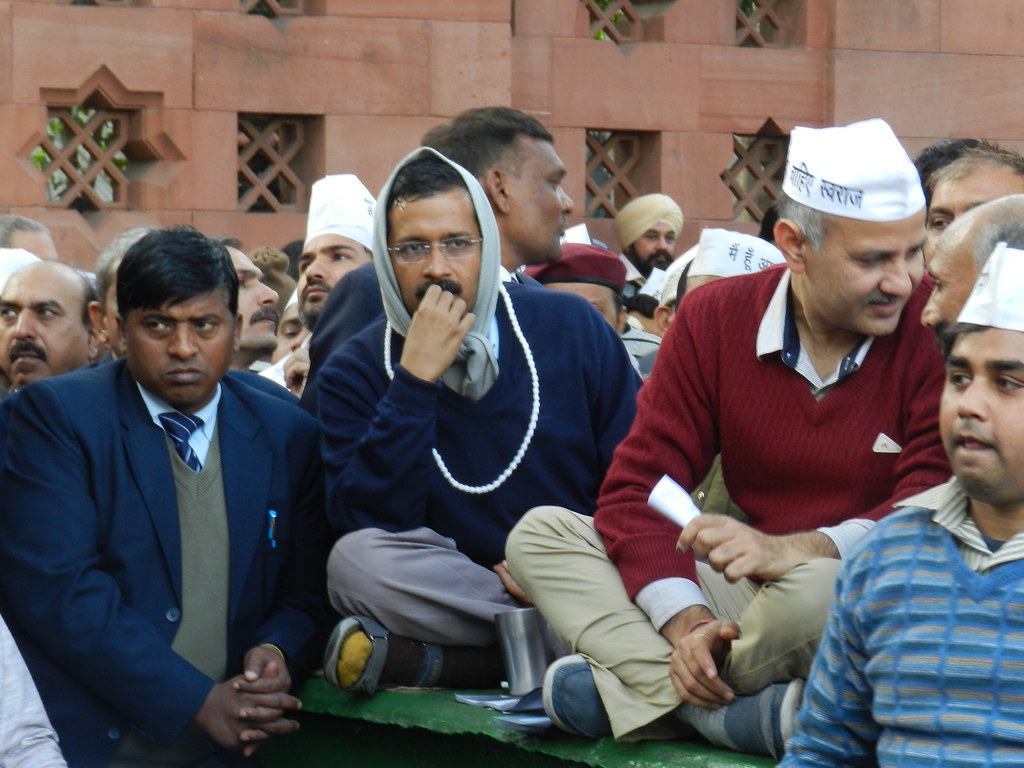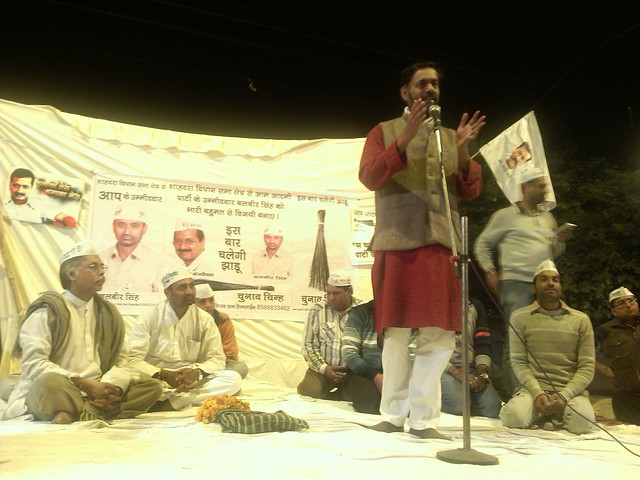By M Reyaz, TwoCircles.net,
More than ever Aam Aadmi Party (AAP) seems to be emerging as a credible alternative, a party with difference in real sense of the term, from the two national parties, the Left Front and host of regional parties for voters across the social spectrum. What has been interesting and remarkable change for the party though is its perception amongst the Muslim community, which is gradually warming up to the new party.
The anti-corruption Anna Movement that began in 2011 clearly had the right-wing imprint, despite association of people like Prof Yogendra Yadav, Prof Anand Kumar, Prashant Bhushan, etc. But the redux of the movement that emerged as a political party consciously tried to chart out a separate path from its earlier avatar. As the party took concrete shape and started campaigning for the Delhi Assembly elections, and particularly after its spectacular result, many of its polciies appeared to be more ‘socialist’ like, although as a core member of the party, Prof Yogendra Yadav suggested, AAP is beyond any ‘-ism.’

In an interview with me before the elections, Yogendra Yadav emphatically said that AAP is “trying to move beyond two kinds of politics that dominate any discussion on the Muslim question towards a third kind of politics which moves beyond pseudo-nationalism and this completely bankrupt form of secularism which being practiced.”
For a very long time, however, AAP seemed to shy away from clearly making its position clear on issues of communalism and issues concerning minorities, in particular, although it had paid lip-services to some of those apprehensions in its manifesto. In fact during the peak of Delhi Assembly elections’ campaign Muzaffarnagar riots ensued and the deplorable conditions of victims were reported, yet AAP remained silent.
Consequently a party that emerged from chanting of ‘Bharat Mata ki Jai,’ and clear right-wing tilt (RSS leaders have confessed how their cadres supported the Anna movement), was frowned upon by most Muslims in Delhi at a time when large number of voters, including educated middle class, migrants Dalits, etc shifted to AAP. The party too realized this and formed a Task Force to reach out to Muslims, in particular.
That seemed to have paid some dividend as Muslim groups like Jamaat e Islami Hind had extended support to AAP after their excellent performance in Delhi, although before the Assembly elections, they had issued statement favouring Congress and warned the voters against dividing Muslim votes that would have helped BJP. Before the elections, several Muslim voters – both educated and semi-literate – said as much to me when they said that they wished to vote for Jhaadu (AAP’s symbol – broom), but did not perceived them as ‘potent force,’ and hence spoke of remaining with the Congress to keep BJP at bay.
%2Bin%2Bthe%2BDelhi%2Belections.jpg)
Yadav had attacked both the BJP style of “nationalist” politics and the “so called politics of secularism,” which “reduces the concerns of Muslims to problems which are exclusively Muslims,” so the “entire thinking revolves around the question of security and identity,” as if Muslims do not need water, as if they do not need electricity, as if they do not need education and health.
AAP thus strategically moved beyond communal-secular diatribe and instead raised developmental issues concerning livelihood, better infrastructure, etc. instead of same mundane topics of secularism, fear-psychosis or riots, that might have backfired among its ‘core’ voters. Thus gradually Arvind Kejriwal expanded his categories of ‘enemies’ in politics which needed to be weeded out to include communal forces, besides earlier categories of corrupt leaders, dynasts and politicians with criminal backgrounds. He went on to say as much as communalism is a bigger threat than corruption in front of a gathering of Muslim intellectuals.

Nowhere was this more evident than in Gujarat when Arvind Kejriwal attacked Narendra Modi in his home turf on the same pitch, raising issues of development, infrastructure, etc. rather than talking simply about 2002 riots. Consequently AAP has today merged as a credible alternative from opportunistic regional parties, and a shrinking Congress to keep the communal BJP out of power. Increasingly several educated Muslims are beginning to see Kejriwal as the only potential candidate with some caliber to puncture the apparent Hindutva wave of Modi masqueraded as mandate for development.
Post-Script: After AAP’s empathic performance, seen as ‘AAP-wave,’ several ‘wananbe’ politicians and so called community leaders have jumped on the band-wagon with hope to contest elections. Clearly that’s healthy sign, but the party should be as careful in selecting leaders from the community and not get swayed by same clientelism.
(The article first appeared in India.com)

